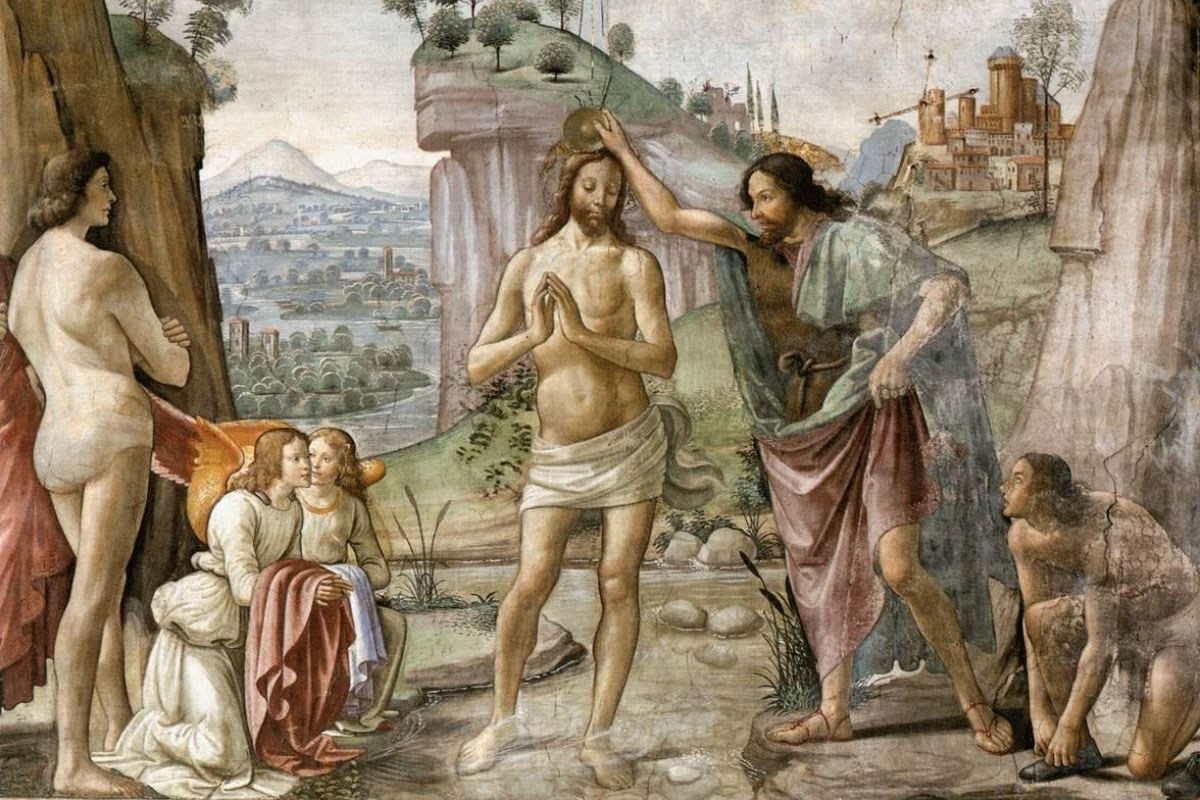CSB Sessions: Jesus and what he taught
Jesus claims to be God. He is either telling the truth, he is disillusioned and doesn't know what he is saying, or he is evil and just trying to deceive us. If he is telling the truth, then we must make a choice either to be with him or not: there is no middle-ground.
In this talk we will better appreciate the Incarnation through the virgin birth. We will learn that Jesus is the Second Person of the Blessed Trinity that has two natures: that of God and man, which are neither mixed nor confused.
By showing how Jesus fulfills the Old Testament prophecies, we will see he is the "new Moses" and the Messiah promised by God through the prophets — therefore not just one teacher among many.
We will also appreciate that Jesus was trying to teach a Gospel of love, that God is a merciful Father, that we must eat his flesh in the Eucharist, and that we must be reborn through baptism.
Topics
- The Incarnation
- Hypostatic Union
- Jesus as God
- Jesus as man
- Jesus as the new law giver
- The Beatitudes
- The Parable of the Prodigal Son
- The Parable of the Good Samaritan
- Important teachings of Jesus
Schedule
| Time | Activity | Details |
|---|---|---|
| 12:45 - 13:00 | Arrival | |
| 13:00 - 13:05 | Opening Prayer | |
| 13:05 - 13:15 | Scriptural Reading and Commentary | Luke 15:1-32 |
| 13:15 - 14:15 | Interactive Talk | |
| 14:15 - 14:30 | Questions and Wrap Up | |
| 14:30 - 14:35 | Departure |
Preparations
The talk is lead by a speaker, but it is an interactive talk where your opinions will be sought in some topics. To get most out of the talk, it would be nice to prepare by reading the following:
- How can Jesus be both God and man at the same time? Why is it important that he is both God and human at the same time?
- The Incarnation (CCC 461-463)
- Jesus is God and Man (CCC 464-470)
- What does it mean when we call God, "Father"? How is different when Jesus calls God, "Father"?
- Jesus as the Son (CCC 232-248, 261-264)
- How do we know from Scripture that Jesus is God? How do we know from Scripture that he is man?
- What is the relationship of I AM in the Old Testament with the New (Exodus 3:14, John 8:24, John 8:28, John 8:58-59, John 13:19, John 18:5-8, 10:30-33
- How do we know Jesus is God the Son? (John 8:57-59, John 13:19, John 18:4-8, Mark 2:3, 2:5-12, Matthew 9:18-26, Luke 7:11-17, John 11:1-44)
- Scripture has constantly promised and prophesied the coming of a Messiah.
- The Messiah is the "anointed" chosen one (Psalms 2:7; Isaiah 42:1; Matthew 3:13-17)
- The Messiah will come from the line of Jesse/David (Isaiah 11:1; Jeremiah 33:14-15; Matthew 1) and will have an everlasting Kingdom (Daniel 7:13-14, Luke 1:32-33)
- The Good Shepherd (Jeremiah 23:1-5 vis–à–vis John 10:11-18)
- The Messiah will bring back the tribes of Israel (Isaiah 11:10-12; Jeremiah 23:1-6; John 10:1-16) Jacob's Testament (Genesis 49) Pay close attention to Genesis 49:28. Read vis–à–vis Matthew 10:1-6.
- The Messiah will be born in Bethlehem like David (Micah 5:1; Luke 2:1-14)
- The Messiah will cleanse the temple and make water flow from its side. (Ezekiel 47:1, John 2:21, John 19:34)
- How does Jesus fulfill the role of Messiah? (Isaiah 11:1, Matthew 1:1-17; Isaiah 11:10-12, John 11:49-52; Micah 5:1)
- How is Jesus King? Priest? One of the roles Jesus assumed was that of a prophet who would teach and reveal God and his will. Because of this we say Jesus is a teacher; but is he a teacher the same way Buddha, or Mohammed, or Confucius, or Ghandi are? How is he the new Moses?
- Escape from the King's murderous rage (Exodus 1:22, Exodus 2:1-10 read vis–à–vis Matthew 2:13-14, 2:16)
- Transmitting God's Laws (Exodus 20:1-17 read vis–à–vis Matthew 5:1-12)
- Doing God's covenant (Exodus 24:8 read vis–à–vis Matthew 26:27-28 and Luke 22:20)
- What did Jesus teach us? Does that mean whatever he taught cancels the old laws such as the Ten Commandments?
- The Beatitudes (Matthew 5:3-10, CCC 1716)
- The greatest commandment (Matthew 22:36-40; John 13:34-35)
- What did Jesus teach us? (Matthew 5, Luke 10:27, Mark 12:30-31, Matthew 22:37, Galatians 5:14)
- Why did Jesus teach using parables? What does the Parable of the Prodigal Son, in Luke 15:11-32, teach us?
- Teaching in Parables (Matthew 13:13-17)
- The Parable of the Prodigal Son (Luke 15:11-32)
- The Parable of the Good Samaritan (Luke 10:25-37)
- What does Jesus mean, in John Chapter 6, when he said we need to eat his flesh?
- The Bread of Life Discourse (John 6)
- In John 3:1-21 what does Jesus mean we need to be born of water and spirit? >
- The Discourse with Nicodemus (John 3:1-21)
- The Discourse with Nicodemus (John 3:1-21)
Frequently Asked Questions
Another thing you might want to bring is the Catechism of the Catholic Church.
If those are too bulky, you can access them on a laptop or mobile phone as follows:
New American Bible: http://www.usccb.org/bible/books-of-the-bible/index.cfm
Catechism of the Catholic Church: http://www.vatican.va/archive/ccc_css/archive/catechism/ccc_toc.htm
Location
Room 902 SDA Building, College of Saint Benilde, P. Ocampo Street, Manila, PhilippinesSpeaker Joby Provido



